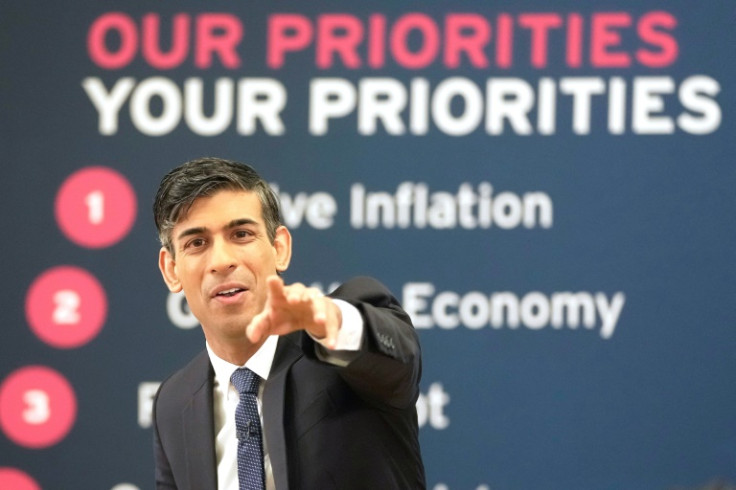PM Rishi Sunak wants UK to get rid of 'anti-math' mindset
Prime Minister Rishi Sunak wants to get rid of the mindset that says it is "OK to be bad at math." The Prime Minister wants to make it compulsory for students to study some form of math until the age of 18.

Prime Minister Rishi Sunak wants to get rid of the mindset that says it is "OK to be bad at math." He believes that an anti-math mindset is proving to be a hindrance to the growth of the country's economy.
The Prime Minister unveiled his plan on Monday to make math education an essential part of children's lives in the UK. In his first policy speech of the year, Sunak spoke about how a lack of numeracy skills can put children at a disadvantage.
"We're one of the few countries not to require our children to study some form of maths up to the age of 18. Right now, just half of all 16-19-year-olds study any maths at all," Sunak said in his speech.
"In a world where data is everywhere and statistics underpin every job, letting our children out into that world without those skills, is letting our children down. So we need to go further," he added.
The UK features among the least numerate countries in the Organisation for Economic Co-operation and Development bloc, per a Bloomberg report.. In his latest speech, he made it clear that he intends to transform the national approach to the subject, which he sees as a key skill.
"We have got to change this anti-maths mindset. We have got to start prizing numeracy for what it is – a key skill every bit as essential as reading. I will not sit back and allow this cultural sense that it is OK to be bad at maths to put our children at a disadvantage," added Sunak.
He believes that poor numeracy skills may cost the economy tens of billions a year or make people unemployable because they will be competing with those who are good at maths.
"We have to fundamentally change our education system so it gives our young people the knowledge and skills they need – and that our businesses need – to compete with the best in the world."
The Prime Minister wants to make it compulsory for students to study some form of math until the age of 18. The announcement regarding the same was made in a speech earlier this year. However, no concrete plans were announced.
In January, Sunak's office highlighted that around 8 million adults in England have the numeracy skills of primary school children. Experts welcomed Sunak's ambitious approach, adding that the plan is "currently unachievable" because the country has a severe shortage of math teachers.
Prime Minister Sunak has made his government's priorities clear since he took office last year. The latest speech made it clear that education remains one of the top priorities for his government. Last year, the government also announced a plan to invest an additional £2 billion in schools in 2023 and another £2 billion the year after.
However, opposition leaders are calling it a way to divert attention from the issues that the government is currently facing. "Once again, the Prime Minister needs to show his working: he cannot deliver this reheated, empty pledge without more maths teachers," said Shadow Education Secretary Bridget Phillipson.
He has also been criticised for not revealing a concrete plan about how he intends to implement all his promises. The speech also did not go down well with social media users, with several of them pointing out that people are scared of math largely because of this kind of rhetoric.
"The thing about Sunak's 'people should be ashamed of their innumeracy, i'll make maths compulsory until the age of 18' is that people are not generally innumerate, they're just spooked by math; and the reason they're spooked by math is largely this kind of bullsh*t," a Twitter user commented.
"Pretty sure it's Brexit, poor leadership and short term bonkers budgets that are damaging our economy, but maybe better math provision now means our future PMs and chancellors will better understand that?" added another.
© Copyright IBTimes 2024. All rights reserved.






